Tag Archives: North Atlantic right whale

Evidence shows Maine lobster gear has not contributed to decline in Right whale population
In today’s world, it is hard to discern truth from opinion, or fact from calculated lies.,, The fact is also that no documented right whale death has ever been attributed to Maine lobstermen. There has only been one known entanglement in the past 20 years (2012). That whale was disentangled and set free.,,, The combination of ship strikes and snow crab gear entanglement was catastrophic, but had nothing to do with Maine lobster gear. The “guilt by association” assumption by environmental groups and NOAA/NMFS is unwarranted and unacceptable. By Jack Merrill. >click to read< 07:55
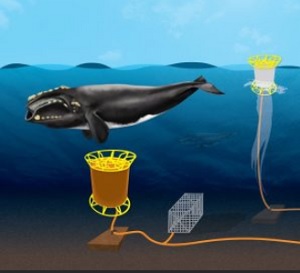
Ropeless Fishing Shows Promise, But There’s a Catch: Financial, Safety, Technology Challenges
On a cold January morning, a lobster trap sitting on a table at a manufacturing facility in Wareham is rhythmically beeping. Two final beeps have a special meaning. “So that’s the release confirmation,” explained Rob Morris, who sells acoustic release systems for the underwater technology company EdgeTech. These “ropeless” systems do away with the high number of vertical lines that run from buoys on the surface down to traps on the ocean floor. Looking at this table, Morris sees the future of the fishery, and many conservationists share that hope. Ropeless fishing eliminates vertical lines in the water column that are blamed for around half of all reported North Atlantic right whale deaths. >click to read< 10:22
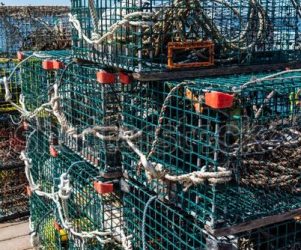
Massachusetts Marine Fisheries Advisory Commission bans inshore lobstering during whale migration
Meeting via webinar, the MFAC overwhelmingly approved five of the six recommendations presented by the state Division of Marine Fisheries, setting the stage for a hectic start to the state’s 2021 lobster fishing season.,, A Feb. 1 to May 15 closure to commercial trap gear in all state waters,, weaker buoy lines,, A Jan. 15 to May 15 gillnet closure in Cape Cod Bay,, All but one of the approved measures passed on unanimous 8-0 votes. The exception was the recommendation for the Feb. 1 to May 15 commercial trap gear closure in all state waters. The lone dissenting vote on the measure came from longtime Gloucester lobsterman Arthur “Sooky” Sawyer, “I can’t support this motion. The Massachusetts inshore lobster fishery has never killed a right whale. I’m voting no.” >click to read< 18:35

Canadian Space Agency to use satellite data to track North Atlantic right whales
The Canadian Space Agency is harnessing satellite technology to monitor and protect endangered North Atlantic right whales in the country’s waters. The agency said Tuesday it will lead a $5.3-million project funded by the federal government called smartWhales, which will use satellites to detect the presence of right whales and to predict the animals’ movements. Canada is giving a total of $5.3 million over three years to five companies for a series of projects to help protect the endangered species. One of the projects will involve a system that can rapidly provide location data and detect if the whales are approaching a fishing vessel. >click to read< 18:05

Lobstermen react to proposed NOAA rule
A Jan. 20 public meeting on the latest proposal to reduce the risk of whale entanglements in fishing lines focused on northern and eastern Maine lobster fishing. At this latest meeting, local lobstermen echoed similar concerns they aired when discussions started two years ago: NOAA is relying on incomplete and outdated data, and fishermen are not seeing right whales in Maine waters. NOAA scientists agree that more data would be useful. >click to read< 08:19
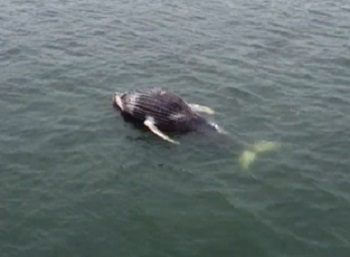
Enviros sue for North Atlantic Right Whale protections from ship strikes
Four conservation groups filed an injunction in a Washington, D.C., court last week asking the National Marine Fisheries Service to expand its efforts to protect right whales and their calves from being hit by ships. Although entanglement in fishing lines gets a lot of headlines, ship strikes have emerged as a prime killer of the right whales, whose numbers have dropped from a peak of 481 in 2011 to 356 this year. Eleven calves, including two that were spotted Wednesday off Amelia Island, Florida, so far this calving season are not accounted for in that estimate. >click to read< 09:50
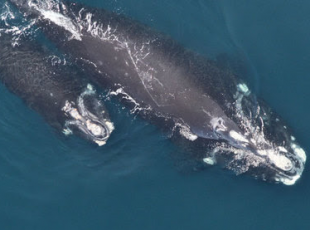
North Atlantic Right Whales – Proposed Pot/Trap Fisheries Regulations – Available for Public Comment
Today, we released our proposed modifications to the Atlantic Large Whale Take Reduction Plan to further reduce the impacts of entanglement in fishing gear on right whales in U.S. waters. The proposed modifications focus on the Northeast Jonah crab and lobster trap/pot fisheries, which deploy about 93 percent of the buoy lines fished in areas where right whales occur. In 2021, the team will be asked to recommend risk reduction measures for other Atlantic trap/pot and gillnet fisheries. We also released the associated Draft Environmental Impact Statement. >click to read< 12:02

Proposed Modifications revealed to the Atlantic Large Whale Take Reduction Plan
Today, we released our proposed modifications to the Atlantic Large Whale Take Reduction Plan to further reduce the impacts of entanglement in fishing gear on right whales in U.S. waters.,,, In 2021, the Atlantic Large Whale Take Reduction Team will be asked to recommend risk reduction measures for other Atlantic trap/pot and gillnet fisheries. We opened a public comment period on both of these documents. >click to read< Statement from Commissioner Keliher on Today’s Proposed Whale Regulation Announcement by NOAA – >click to read< 10:58
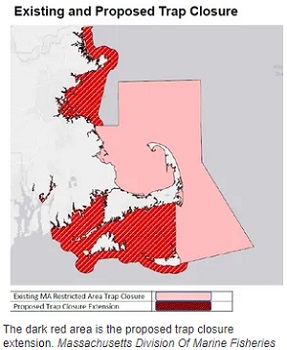
Livelihoods Threatened: Massachusetts lobstermen concerned about proposed regulations to protect whales
The Massachusetts Division of Marine Fisheries is proposing multiple amendments to current rules regulating fixed gear fisheries in an effort to protect an the North Atlantic right whale. Two local lobstermen say the proposed regulations threaten their livelihoods. “It’s gonna take roughly 30% of my income away from me,” said Dave Magee,,, Tom Tomkiewicz, a Fairhaven lobsterman, was not sold on the regulation, the regulations could cut 30% of his catch and up to 50% of his income,,, “All the bait guys, the marine supply guys, the shipyards, down to the restaurants we go to once or twice a week. We’re not going to be able to go because we won’t have the money. It’s going to affect a lot of people not even involved.” >click to read< 13:07
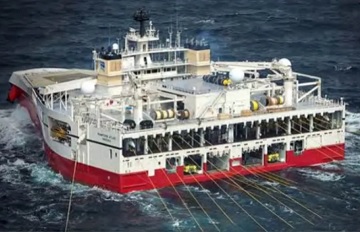
Scientists cast doubt on seismic testing environmental mitigations in N.L.’s offshore
Jack Lawson spent part of this past summer listening for whales around Newfoundland, using recorders moored underwater to track their movements and hear what man-made sounds they may encounter. “All you can hear 24 hours a day, for months on end, every 10 seconds is the boom of a seismic array going off at various distances from our acoustic receivers, and this has made it very hard for us to detect some species, The guns make it hard for Lawson and his team’s recorders, with the technology confusing the pulsing calls of right whales with seismic activity in the distance, DFO scientists thought they’d recorded tens of thousands of instances of right whale calls in the Flemish Pass in 2019, Lawson said. “[But] when we actually went through and manually reviewed these, none of them turned out to be real.” >click to read< 10:41

Massachusetts Lobstermen Raise Concerns Over Proposed Whale Regulations
At a public hearing on Tuesday, the Massachusetts Department of Marine Fisheries (DMF) shared its recommendations to extend a seasonal commercial gear closure to areas north and east of the Cape from February 1 through April 30. “I’m just trying to plan for the future of fisheries. I mean, if we have a closure this will really close down the state to any type of income,” said Mike Lane, a fisherman who asked whether the state would require modifications to other kinds of fishing gear. Officials were unable to provide an economic impact report based on these recommendations,,, (someone that was there said there was a lot of ropeless chatter) >click to read< 07:30
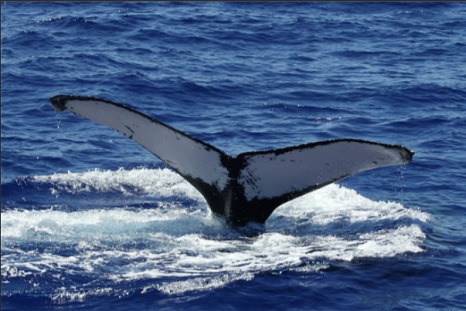
No North Atlantic Right Whale Deaths In Canadian Waters This Year
It has been a good year for the endangered North Atlantic right whale in Canadian waters. Federal officials say no deaths or new entanglements have been reported to date. The government credits “significant” action taken to help protect the whale. A new season-long fishing area closure protocol was introduced in the Gulf of St. Lawrence based on where whales were detected. Fisheries and Oceans Canada also expanded the scope of where temporary and season-long closures were applied. >click to read< 15:50
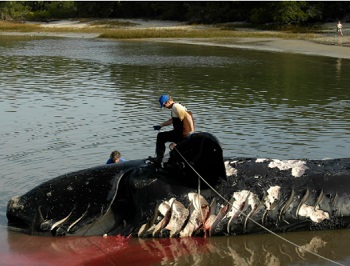
From the sea floor to the courtroom, the fight to save right whales
The North Atlantic right whale is one of the most endangered species on the planet. Scientists announced last month that there are only about 360 of the animals left, down roughly 50 from the previous year’s survey. They live along the East Coast, from northern Florida to Canada, where the 50-foot-long, 140,000-pound leviathans must navigate through millions of commercial fishing lines primarily, lobster traps, and one of the world’s most crowded shipping channels. Too often they become tangled in those lines, or are struck by a ship, (Ships, A LOT of ships). The fight to save them, led by biologists and conservation groups, has grown urgent — in the water and in the courts. >click to read< 11:28
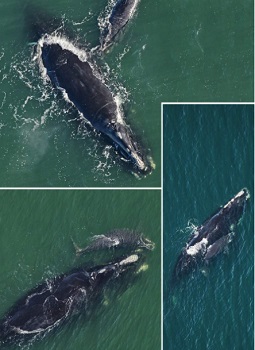
Three New Calves! North Atlantic Right Whale calving season is now underway
Right whales are an endangered species that usually migrate south along the Georgia and Florida coastline to give birth to their calves. The Florida Fish and Wildlife Conservation Commission announced over the weekend that calving season is now underway and lasts through March. In the 2020 calving season, there were 10 calves born, which was up from seven in the 2019 season. Despite the increase in calves, the species is still endangered. In the 2020 calving season, there were 10 calves born, which was up from seven in the 2019 season.>click to read< 15:27
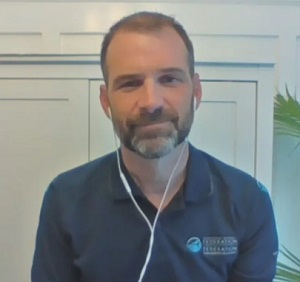
More ropeless fishing “experiments” happening on Eastern seaboard as industry leaders meet.
Sean Brillant, who works for the Canadian Wildlife Federation and is chair of the Ropeless Consortium, said they are approaching roughly 1,000 trials across the Eastern Seaboard, the bulk of which has been done in the last 12 months. “Two years ago, we were just getting laughed in our faces at the idea of doing this,” Brillant said. The methods being tested include techniques that allow a line to be stored with a trap at the ocean bottom, and then released to the surface only when a fisherman is ready to haul in their catch. The aim is to cut the risk that whales will be caught in long lengths of rope floating in the water. >click to read< 09:05

Canada, U.S. researchers gathering virtually to report on right whales
Researchers from Canada and the U.S. are gathering virtually this week for an annual conference that focuses on an endangered whale species. The North Atlantic Right Whale Consortium, which brings together academic researchers, government agencies, shipping and fishing industries and conservation organizations, is expected to release part of a yearly report card on how the whales are faring. ,, So far this year, one right whale has been found dead in U.S. with wounds that suggested a vessel strike. There have been no reported deaths in Canadian waters so far in 2020. >click to read< 09:40

Zone B waits to present recommendation
Even though a deadline to present a state plan designed to minimize potential harm to right whales is fast approaching, members of the Zone B Lobster Management Council asked Department of Marine Resources officials to check numbers for the area 6-12 miles offshore before agreeing to a plan specific to that fishing zone. “The timeline is short,” said DMR Commissioner Pat Keliher,,, While most members of the Zone B council seemed in favor of the subcommittee’s recommendations, there was some hesitation. “I support this; it would work for me,” said Howland. “I’d hate to railroad it if there are some concerns. This is better than it could be, but it doesn’t sound like it’s ideal for some guys.”,, “There’s a side of me that feels like this is getting stuffed down my throat,” said council member James Hanscom after asking if the decision could be tabled. >click to read< 08:09

Max Strahan driven by “duty” to have stricter measures adopted
To many federal and state fisheries managers, and to most people in the lobster industry, the name Max Strahan conjures images of a fanatic determined to put an end to lobster fishing in the name of saving endangered right whales from extinction. (he is), “I’m a scientist and a very ethical and moral person,” (he’s not) Strahan said, claiming that, of 330 million U.S. citizens, he was the only one to file individual suits under the federal Endangered Species Act (ESA).,, Strahan said he grew up on a farm “somewhere around the area” of New Hampshire and, as a young man, was interested in outdoor activities such as hiking and rock climbing. That led to his interest in wildlife preservation and eventually his efforts to save the endangered spotted owl in the forests of California and Oregon. Strahan filed a petition with the U.S. Fish and Wildlife Service to list the birds under the ESA and ultimately the petition was accepted, the owls listed and much of the Pacific timber industry put out of business. >click to read< 09:39

Everything you’ve heard about ‘ropeless’ fishing gear is false.
Is so-called “ropeless” fishing gear the magic bullet for the perceived problem of marine mammal interactions in California’s crab fisheries? (what about the New England lobster fishery?) Several profit-driven environmental groups, including Oceana, would like the public and the California Department of Fish and Wildlife (CDFW) to believe it is.,,, In truth, there have only been four mortalities attributed to CA commercial Dungeness crab gear since 2013, and none during the last two seasons.,,, Maine’s lobster fishery has never had a documented serious injury or mortality for any Right whale, and no entanglement since 2002, which makes this a non-problem. One of the problems with “ropeless” gear is that it’s a misleading term used by the profit-driven environmental groups to make it seem harmless. >click to read< 15:06
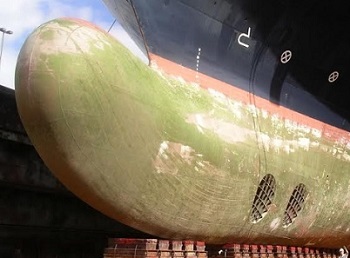
The Judge has ruled! NMFS must list the North Atlantic Right Whale entanglement facts on paper. Case Closed!
Judge Boasberg has ruled! A new accurate ESA analysis has been ordered by next June. The National Marine Fisheries Service just needs to put the lobster entanglement facts on paper and it’s “Case Closed” Not only was there an unusual mortality event in the Gulf of St Lawrence. The Right Whales stopped reproducing. Basically the whales moved up into the South West Gulf of Saint Lawrence in 2015 and took the crab fishermen by surprise and also they set up feeding on copious copepods at the mouth of the St Lawrence River where the Spring flood of nutrients kicks off phytoplankton blooms. Unfortunately this is directly under a shipping lane used solely by cruise ships who traveled at night starting at the end of April.,, by Jim O’Connell, >click to read< 20:26

Boasberg sets deadline for new North Atlantic Right Whale Protections no later than May 31, 2021
The Center for Biological Diversity, Conservation Law Foundation, Defenders of Wildlife and the Humane Society of the United States sued the federal government for violating the Endangered Species Act by allowing the lobster fishery to operate in a manner known to entangle right whales. U.S. District Court Judge James E. Boasberg also ordered a new ESA-mandated analysis of the American lobster fishery that takes into account the full scope of its harm to right whales. He stopped short of prohibiting lobster fishing with vertical buoy lines in a key right whale feeding area, which the groups had requested as an interim measure. >click to read< 07:15
Judge: Lobstering can proceed until new right whale protections are finalized in May – The right whale protection lawsuit winding its way through the federal courts for two years has often been called the “wild card” in the battle between environmental groups trying to save the critically endangered whale from extinction and Maine lobstermen trying to protect their way of life. >click to read< 17:24
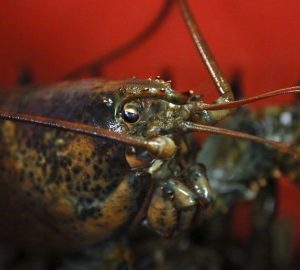
North Atlantic Right Whale: Maine Certified Sustainable Lobster Association loses MSC certification despite sustainable management of the Maine lobster fishery
The Maine Certified Sustainable Lobster Association (MCSLA) announced today that its Marine Stewardship Council (MSC) certification will be suspended due to a recent decision in the federal case Center for Biological Diversity v. Ross. The certificate suspension is occurring despite continued sustainable management of the Maine lobster fishery and remains the direct result of NOAA’s 2014 biological opinion on the impact that lobster fishing has on right whales. The MCSLA is anticipating NOAA’s 2020 draft biological opinion, which may be made public as soon as August 2020. Once the 2020 biological opinion is finalized and implemented, the MCSLA will work to quickly regain its MSC certification. >click to read< 11:45

Whale info way off, by Maine Lobsterman Leonard Young
Reading Bill McWeeny’s July 23 commentary bothered me a great deal. His statement that right whales have never been so close to extinction since they were hunted is untrue. I’ve been a lobsterman for almost 50 years, and we’ve been dealing with the whale issue for almost two decades. When we started this process, we were told there were 200 of these animals. Mr. McWeeny decided to omit the fact that we had modified our gear many years ago with sinking ground lines, breakaways in our end lines and more traps on end lines to decrease end lines. Since we did this, entanglements decreased considerably. These animals had increased to almost 500. Then they changed their feeding ground,, by Maine Lobsterman Leonard Young, Corea >click to read< 11:20
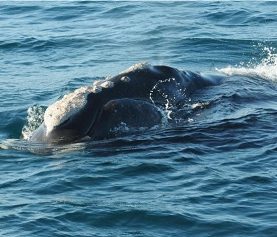
‘Blame the fishermen’ media narrative only hurts the endangered right whale
It is not easy to see this population of giants of the sea become extinct, and yes, it is sad. Perhaps it’s because it hits us so hard that we feel the need to point the finger at the culprits. This even more true for the media, who rush to get answers, right away and without asking themselves the real questions.,, If we play the game of “Whose fault is it?”, only in this way will we be able to place the shipping vessels among the guilty parties. As happens too often, the article in question used fishermen as easy targets for a gratuitous accusation under the circumstances. When a whale is hit by a shipping vessel, it either gets injured or dies. In the dock are also the fishermen, for whom blame is almost automatic. >click to read< 10:27
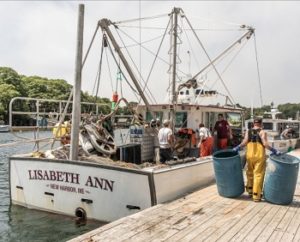
Prime Lobster Season Is Here, but Mike Dawson Isn’t Celebrating.
Mike Dawson (self-employed) Location: New Harbor, Maine Employees: 1, Status: Open, essential industry. The lobsters have just started to “come on” for the 2020 season, which in the lexicon of a Maine lobsterman means the annual lobster migration and catch has begun for the summer. Normally, 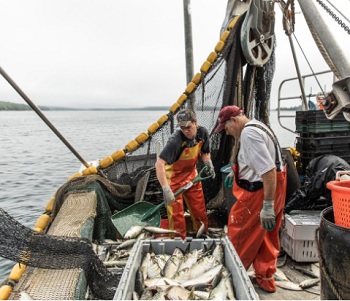 that would signal a time for the state’s 5,000 lobster harvesters to spend all their time setting and hauling traps. Not this year. This season is marked by weak demand from restaurants across the country and seafood processors that are taking less meat during the coronavirus pandemic. International markets have slammed shut. As a result, lobster prices are weak.Some lobstermen are still sitting on the sidelines, collecting unemployment. Others, like Mike Dawson, who fishes off New Harbor, Maine, have diversified by catching pogeys, or bait fish, in addition to catching lobster. 16 photo’s, >click to read< 16:05
that would signal a time for the state’s 5,000 lobster harvesters to spend all their time setting and hauling traps. Not this year. This season is marked by weak demand from restaurants across the country and seafood processors that are taking less meat during the coronavirus pandemic. International markets have slammed shut. As a result, lobster prices are weak.Some lobstermen are still sitting on the sidelines, collecting unemployment. Others, like Mike Dawson, who fishes off New Harbor, Maine, have diversified by catching pogeys, or bait fish, in addition to catching lobster. 16 photo’s, >click to read< 16:05

Northern Right Whales Are on the Brink, and Trump Could Be Their Last Hope
The task of responding will fall to an unlikely champion, President Trump, whose recent appeals for support from Maine lobstermen could clash with the task of saving the right whale. Peter Corkeron, a senior scientist at the New England Aquarium who spent nearly a decade chronicling the gruesome deaths of right whales as the director of the National Oceanic and Atmospheric Association’s research program for large whales, said he feared the listing would have little impact. “Lobstermen certainly recognize the dire circumstance that the right whale species is in right now,” Patrice McCarron, “We’re in this awkward situation where right whales are not doing great, and it’s certainly not the fault of the commercial fisheries.”PEER also filed a complaint last year with the inspector general of the Commerce Department, which oversees NOAA, arguing that federal officials intent on reopening fishing areas have been ignoring their own scientists on climate change as well as other threats to whales. >click to read< 11:37
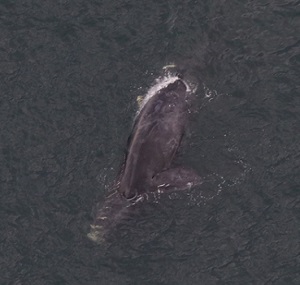
Officials examining right whale found dead off N.J. – wounds are “consistent with a vessel collision”
The whale’s carcass was spotted floating in the ocean near Monmouth Beach at 12:15 p.m. Friday after first being seen a few miles south in the water off of Long Branch, according to a statement from NOAA.,, was working on a plan to tow it to shore so it could be examined and its cause of death could be determined by a team of investigators.A preliminary examination of the mammal showed several wounds along its head and body that are “consistent with a vessel collision,” however its official cause of death was still unknown, NOAA officials said. >click to read< 08:50







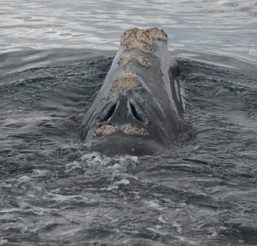



























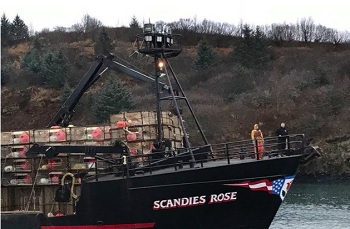
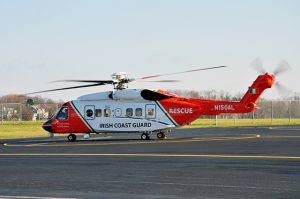

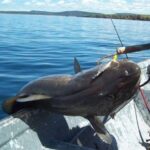
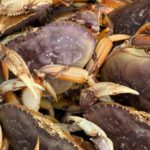


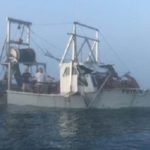

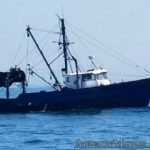
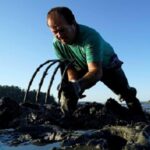
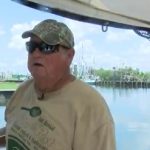
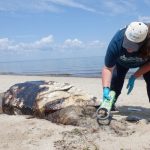
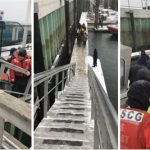



Maine delegation requests comment period extension for BiOp with profound impact on Maine lobstermen
The BiOp is an assessment of a federal agency’s impact on an endangered species. In this case, the Biological Opinion assesses the effectiveness of regulations that the National Oceanic and Atmospheric Administration has imposed on the Maine lobster fishery to protect the North Atlantic Right Whale. Maine lobstermen have already taken significant steps to protect the right whale, despite there being no direct evidence that a single right whale serious injury or mortality has been attributable to the Gulf of Maine or Georges Bank lobster fishery since 2004. >click to read< 09:29
Share this post